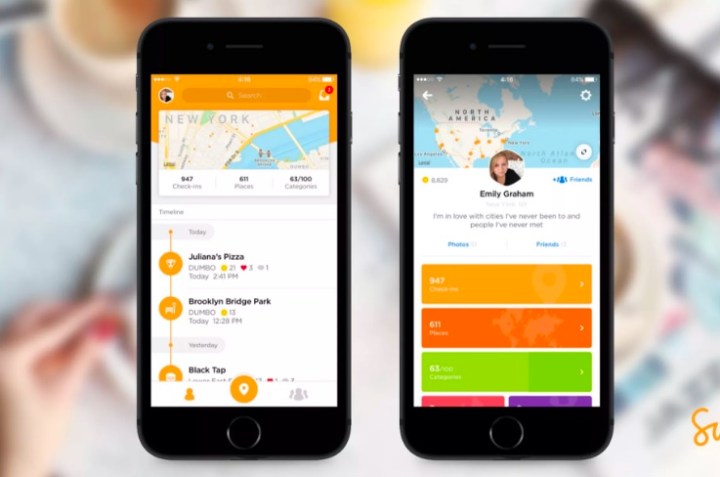
“We want to remember our experiences: Not for others, but for ourselves,” Swarm noted in a blog post announcement. It’s a rather bold statement to make in the world of Instagram and Snapchat, two hugely popular social media apps that are all about sharing with an audience. But this is by no means the first time that Swarm has taken a risk. After all, the app itself was spun out of Foursquare back in 2014, embarking upon a journey all its own while its parent company focused on local discovery.
With Swarm 5.0, you’ll be able to focus a lot more on yourself. The home screen has three tabs — Me, Check-in, and My Friends. In the Me tab, you’ll see an interactive map that shows you where you’ve been. Below that image, you can check out your personal timeline that features some pretty nifty search functions. For example, you can (re)discover who you checked into a locale with, look into all the places you visited while in a certain city, or even filter your destinations by cuisine.
“Historically, our biggest challenge has been to make things simpler as opposed to more complex,” Foursquare’s cofounder and cxecutive chairman, Dennis Crowley, told TechCrunch. “It’s very easy to continue adding features, but we challenged ourselves to remove 70 percent of the complexity from the app so that users can understand it right away.”
And as it stands, Swarm is quite easy to understand. In essence, it’s just a tool to help you remember everywhere you’ve been, and with an ever increasing number of destinations, that could be hugely helpful. As Crowley told the Verge, “If you get in the habit of checking in everywhere you go, you just take it for granted that you have this version of your memory that you will never forget.”


